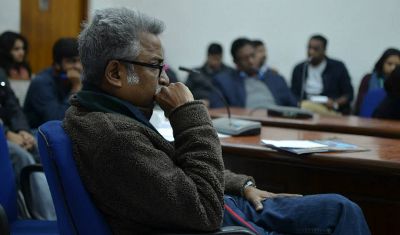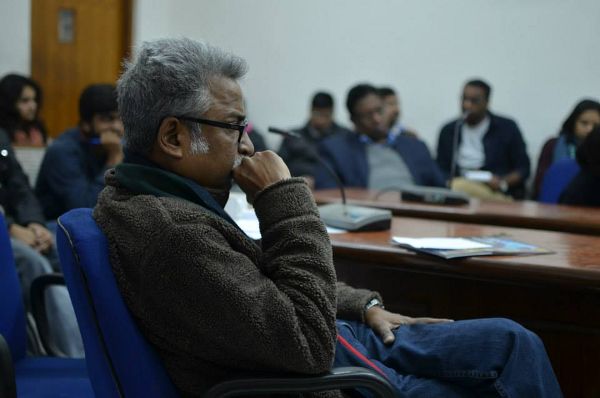The sudden and untimely death of M.S.S. Pandian a renowned scholar of our times shocks everyone acquainted with him. We came to know Mr. Pandian through his article in the EPW in the year 1993, in support of PALA’s struggle to ‘Enter the sanctum sanctorum of Srirangam Temple at Trichy. The aim of the struggle was to expose the illusion of ‘Hindu unity’ and highlight the constitutional sanction accorded to the institution of caste and brahminism in matters of Hindu religious faith. His article, while dwelling into the facts around the struggle, highlighted history and politics behind the struggle, especially about Dravidian movement and EVR Periyar.
The demise of Mr. Pandian also reminds us of the early 1990s and the emergence of Sangh parivar in Indian political arena, pronouncing hindutva as its agenda. During those days PALA was a lone voice to put forth the concept of Brahminical fascism. The left in general was attacking hindutva as an intolerant version of Hinduism, while we argued that the essence of Hinduism was brahminism, and this ideological core of Hinduism should be exposed. It did not have many takers at that time, and situation has not changed much even today.
The deep rooted prejudice and hatred of the ‘north Indian mind’ towards Tamil Nadu, for its ‘anti-hindi, anti-brahmin, anti-mainstream’ approach in national politics has much to do with this. North Indian intellectuals in general are ignorant of the rich tamil tradition which is independent of brahmanic and sanskritic traditions of the north and are unwilling to learn about Dravidian movement of Tamil Nadu. Mr. Pandian’s writings in English gain significance in this context, as they were instrumental in removing North India’s ignorance, or arrogance to be precise.
During the 90’s, when he was working at The Madras Institute of Development Studies, we had opportunity to discuss with him various issues. His support to the Eelam movement was not unequivocal. His approach towards LTTE was critical, and he did not endorse tamil nationalism devoid of anti-Brahminism. His writings expose MGR and Jayalalitha claiming the legacy of the dravidian movement. He is also critical in his approach towards the brahminisation of intermediary castes. Recently when the Nadar community (previously shaanars) was up in arms against the NCERT text book, which dealt with the historical fact that shaanars, were treated as untouchables during the 19th century , almost all the political parties joined the chorus against NCERT. But Pandian was unsparing in his critique. He wrote that the clamour for a censored caste history has a right-wing Hindu character to it.
It is a rarity in Indian scenario, for a public intellectual to profess openly against brahminism and to persist with it all through one’s life. It is also exceptional for such a person to be acclaimed a scholar. Mr. Pandian won it.
In 1996, we hosted the conference of the All India League for Revolutionary Culture in Chennai. Mr.Pandian who was supposed to speak in the seminar, was indisposed on that day. Yet, as a mark of respect, he made it a point to attend the programme. We cannot forget the regard he had towards the the ML movement and his anguish on the emergence of hindu fascist forces and the decline of the democratic forces.
A non-egotist public intellectual he was, and it is deeply saddening when one reminisces his congenial dialogue and warm friendship.
Peoples Art and Literary Association,
Tamilnadu.


